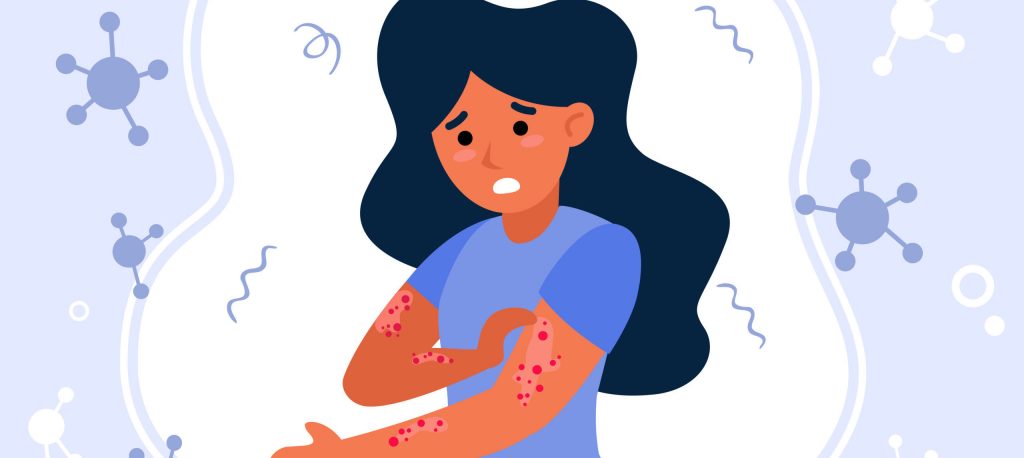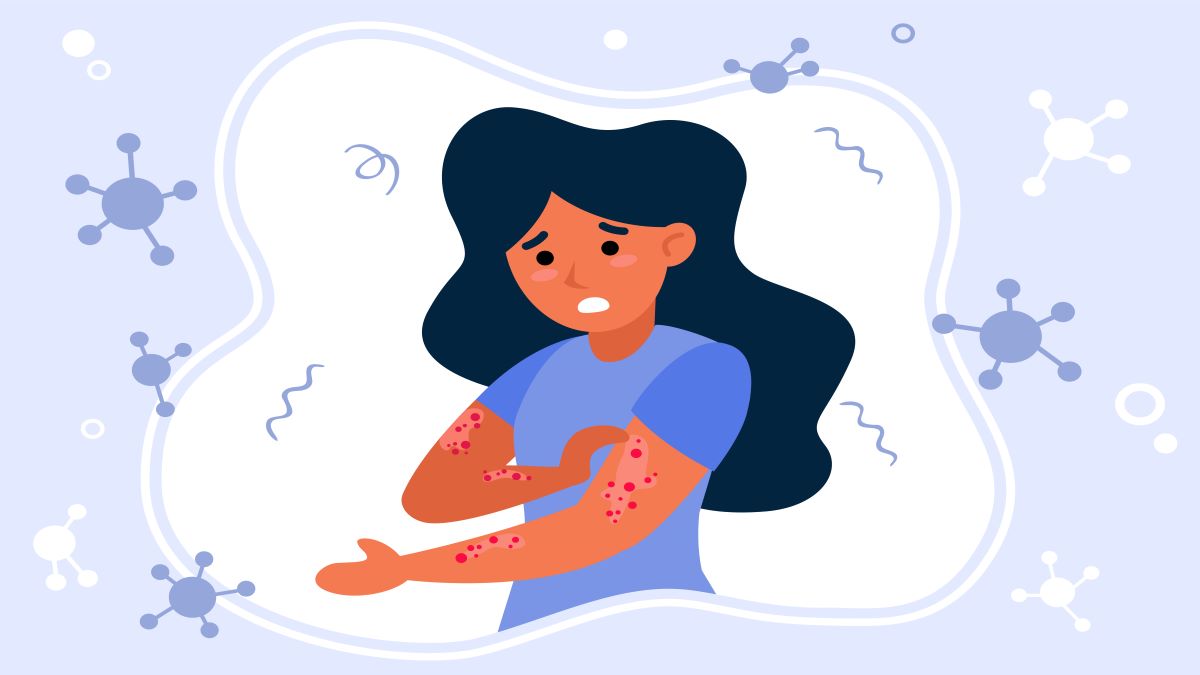Medically reviewed by Dr. Muhammad Ashraf Shera.
Psoriasis is a skin condition that affects around 125 million people worldwide, and about 3% of Pakistan’s population. Although not life-threatening, Psoriasis may reduce the quality of life for sufferers. A common misconception is that Psoriasis is simply a skin condition. This is why most people take psoriasis rather lightly until they experience serious flare-ups that simply cannot be ignored anymore. It is an autoimmune disorder that could very well be linked with other disorders as well. Although it is not curable, with the right kind of treatment and lifestyle modification you can very safely go symptom-free for a long period of time. So throw away your desi-totkas because we’ve got you covered!
Psoriasis Facts You Need To Know
Psoriasis is a common autoimmune disease, and though doctors are still unsure about what causes it, research suggests it is related to your immune system and genetics. So if someone in your close family has been diagnosed with psoriasis, there are chances you might develop is as well.
No, Psoriasis is not contagious. This is a very common myth that must be addressed properly. Sitting next to someone, or even sharing food with someone with psoriasis is not going to give it to you. If you do develop symptoms, it is most likely due to your own immune system being triggered.
It should also be noted that Psoriasis does not present the same way in everyone and can have different symptoms depending on its type. The most common symptoms are as follows:-
- Red, inflamed, and raised skin patches that can be found anywhere on the body.
- White scales or plaques (thickened, raised patches on the skin)
- Cracked and bleeding dry skin
- Soreness (pain or tenderness), burning, and itchiness around the patches
- Pitted (having small dents), thick nails
- Pain and swelling of joints
Scalp psoriasis is also a type of psoriasis in which thick, red, and scaly plaques can be found on the scalp, forehead, back of the neck, and behind ears. Scalp psoriasis is often found in people suffering from Plaque Psoriasis and treatment is done accordingly.
Triggers that may aggravate Psoriasis
If you do have psoriasis and have been struggling with flare-ups, you may want to look into what is triggering these frequent flare-ups. Here are some of the most common triggers for the disorder
- Stress
- Alcohol
- Injury
- Medications e.g. Lithium, antimalarial drugs and blood pressure medications
- Certain foods that could potentially cause flare-ups including citrus fruits, whole milk, fatty foods, and gluten.
- Cold and dry weather
- Obesity
- Smoking
What You Should Do If You Think You Have Psoriasis
If you think you have psoriasis then do not panic. Psoriasis is a very common disorder and can be effectively managed with the right kind of guidance. Your first step and foremost step should be to consult a physician or dermatologist for a formal diagnosis. After this, you will be given a variety of treatment options which include a mix of oral and topical medications and even light therapy. Some over the counter ointments can be used to reduce symptoms such as itching and burning. These typically contain mild forms of hydrocortisone or salicylic acid. Lifestyle modifications and managing your triggers can also effectively reduce symptoms. However, following home remedies with no genuine science behind them could backfire and cause worsening of symptoms. So your best bet is to relax, consider lifestyle modifications, and follow the advice of your doctor!






